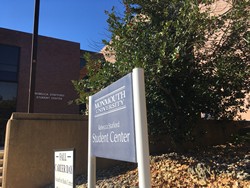Imagine the anxiety and unease felt when you are undergoing any number of stressful situations. The discomfort experienced during those moments is not generally thought of as beneficial and if anything, is considered the complete opposite.
It is therefore incredibly surprising that progressing stem cell research has shown that some normal cells subjected to stress can develop back into their embryonic or stem cell state.
While normal body cells have specific functions in specific areas (such as liver cells, cardiac cells, or muscle cells), stem cells are unique in that they are able to become any other type of cell. This research has thus far been done on mouse spleen cells and has delivered positive results.
Such a transformations from somatic or body cells to stem cells could allow for successful life-saving regeneration treatments. These treatments would involve patients fixing damaged areas of their bodies using their very own transformed cells.
Furthermore, a successful method of transforming body cells would allow for access to a form of personalized medicine. This would involve individual patients being able to have treatment specific to each one of their health requirements, and it would also eliminate complications often faced by transplant patients whose bodies sometimes reject or have difficulty accepting cells from outside sources.
Dr. Dorothy Lobo, a biology professor, said, “With this breakthrough, a simple treatment can cause isolated cells to become pluripotent. It has a lot of promise. The two major benefits are that it may allow for easier treatment if a patients’ own cells can be used, preventing the immune rejection that would accompany using stem cells from another source. Also, it removes the ethical dilemma of using embryos to derive stem cells. For these reasons, this is really important work.”
Although these consequences of this research breakthrough all appear positive, it is important to consider the downside as well. The research has not been shown to have a high efficiency rate, meaning consistency problems in the cells’ responses to the stress conditions. These problems could have much to do with the extensive amount of information still unknown about the behavior of cells in response to various stimuli.
Furthermore, it is necessary to consider how well these findings will work on human cell species. Mice blood cells, which were used for this research, function very similarly to human blood cells however, so there is plenty of hope for this work to prosper.
Shayna O’Connor, a sophomore biology major, said, “Discoveries like these are what keep the field of medicine so exciting for me. It’s amazing to think that even things like stress, which we believe to have mostly negative effects, could lead to such life changing research. It will be interesting to see this research progress because of all the beneficial consequences it will entail.”
There is an entire world of regenerative medicine that is waiting for research such as this. Kerianne Fuoco, a sophomore clinical lab science major, said, “Blood cells are so prevalent within our bodies that to be able to manipulate them into becoming stem cells is a revolutionary concept. It could quite possibly rid the need for organ transplants because individuals would be able to grow their own tissues. Also, regenerated embryonic cells that allow us to create our own tissues would marginally cut costs for expensive surgeries and that saved money could go towards important research such as this.”
Indeed, the probable consequences of this research, if it prevails, are astounding. As we apprehensively watch for where this research is heading, we must stop to appreciate the wonders that our bodies are capable of.
IMAGE TAKEN from biopro-st.com




